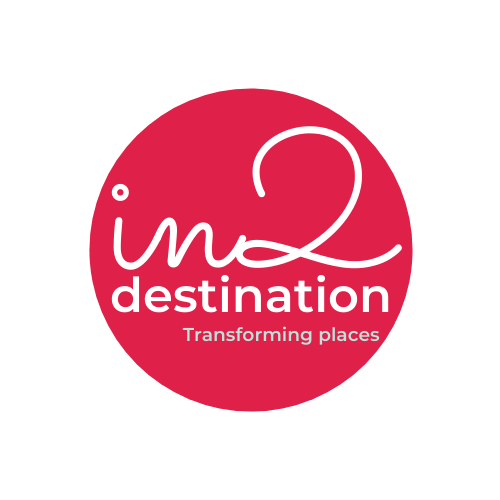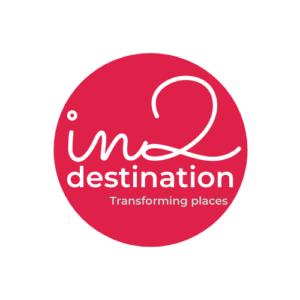Within the framework of the ERICA International Development Cooperation Program (Spain and its Regions Exchange Knowledge with Antioquia), in2destination transfers knowledge within the Pilot Transfer Project on Sustainable Tourism Destinations in Jericó, Antioquia. It is a project that began at the beginning of the summer of 2018 and included in its milestones is a Mission to Spain that took place from November 5 to the 10th of the same month.
 The Mission to Spain consisted of the transfer of knowledge regarding the management of sustainable tourism destinations, generation of experiences and sustainable tourism products and measurement in tourism to the team formed by representatives of the University of Antioquia, the University of EAFIT and two tourism sustainable tourism companies: La Nohelia Ecotourism Center and Tourism and Events Jericó winners of the Sustainable Tourism Plans Contest. The team received training from in2destination on Monday and Tuesday and then the rest of the week it was dedicated to technical visits at Alluitz Natura, School Farm Ultzama, Rural Suites, Valle Salado de Añana, Ostatu Winery and Villa-Lucía Wine Museum.
The Mission to Spain consisted of the transfer of knowledge regarding the management of sustainable tourism destinations, generation of experiences and sustainable tourism products and measurement in tourism to the team formed by representatives of the University of Antioquia, the University of EAFIT and two tourism sustainable tourism companies: La Nohelia Ecotourism Center and Tourism and Events Jericó winners of the Sustainable Tourism Plans Contest. The team received training from in2destination on Monday and Tuesday and then the rest of the week it was dedicated to technical visits at Alluitz Natura, School Farm Ultzama, Rural Suites, Valle Salado de Añana, Ostatu Winery and Villa-Lucía Wine Museum.
The visits made were very well received by the Colombian team given that they involved first-hand learning about private leadership, conviction in gender values, sustainability, recovery of the rural world, inclusion and sometimes raising the value of a destination, joining forces to succeed as a destination, not just as the company itself.
The technical visits began with Alluitz Natura Shepherd Experience for a day, in Abadiño. From these tireless entrepreneurs the team learned the importance of putting focus on networking and selling, as it is very common for entrepreneurs to work in depth the offer and neglect the sale, reach customers, investigate satisfaction to detect improvements to be developed and re-sell each time through channels and with more efficient and successful messages. It was a good opportunity to highlight the importance of betting on revitalizing the rural world and bringing the urban society closer to day-to-day rural life through fun and respect.
One of the experiences that the team most valued was Ultzama Farm School, above all for the values that this entrepreneur defends and exercises: hiring local women under 30 and over 50 given the high unemployment that exists in these age & gender ranges, rescue and care of animals, transfer of knowledge to the visitor of the importance of the rural environment, animal care, the garden and its recovery, and disseminate the Slow Food movement, of which they are part, of good, clean and fair consumption.
In addition, thanks to the attractiveness that this activity generates in the territory and the good synergies that the Farm establishes with other companies in the territory, they are contributing to bringing tourism flows to the valley, thus contributing to the economic sustainability of the rural environment.
A round experience was the four-star Hotel Rural Suite as its entrepreneur leads a sustainable accommodation that is not only accessible to all publics, but it is also adapted and inclusive, he hires people settled in the territory, has an ecological orchard, organic oil production and he offers experiences as sustainable as possible in the territory of La Ribera adapted to all audiences. They are very knowledgeable about all the tourist resources of their territory and know how to value them in a way that also generates flows into the territory, contributing to the tourism destination development.
In Álava, the team learned about three initiatives: Salinas de Añana, Bodegas Ostatu and Villa Lucía Wine Museum. Salinas de Añana showed the commitment to recover a resource that was once the backbone of the territory in which it is located and as today it is again, from the production of salt betting on quality and not volume and combining it with tourist visits that contribute to buy salt and become prescribers and loyal customers. Sustainable management is one of the cornerstones of the people who promote the project and this is evident in the hiring of people, use of energy, use of materials, among other elements.
The Bodegas Ostatu were chosen for their commitment to being an environmentally sustainable winery and Villa Lucía for the 4D experience that both can be transferable to the careful coffee and “carriel” production in Jericó. It also served to learn from the beginning of the Ruta del Vino initiative as a tourism cooperation entity to which some leaders gave life and have been joined by many more to strengthen the Rioja Alavesa destination.



